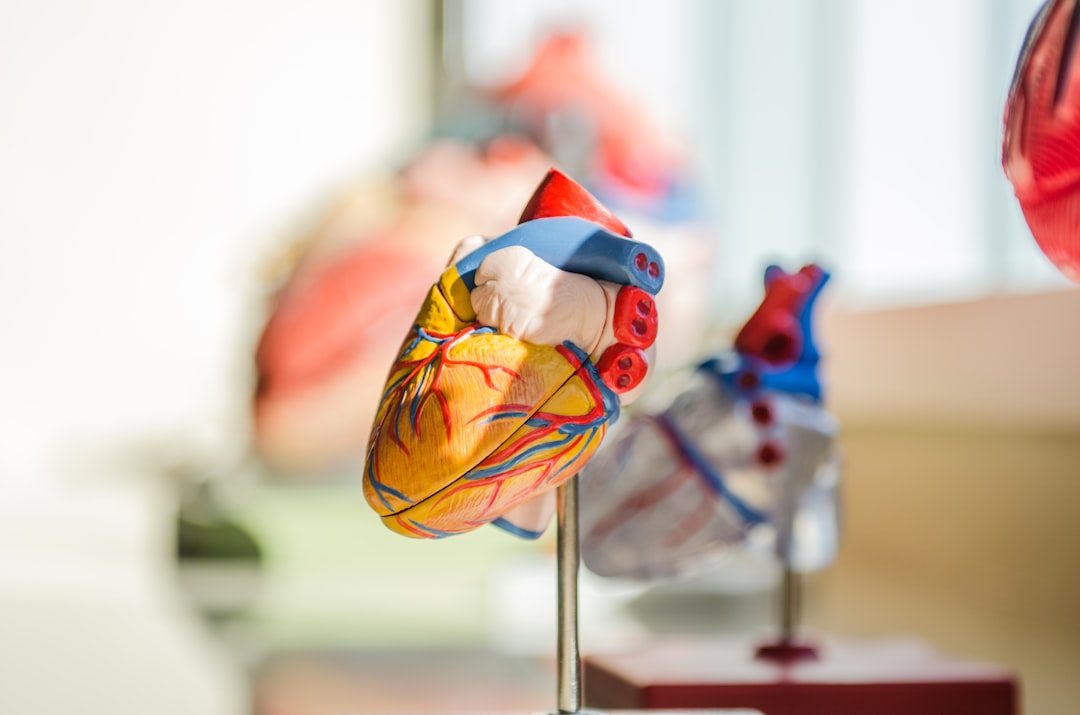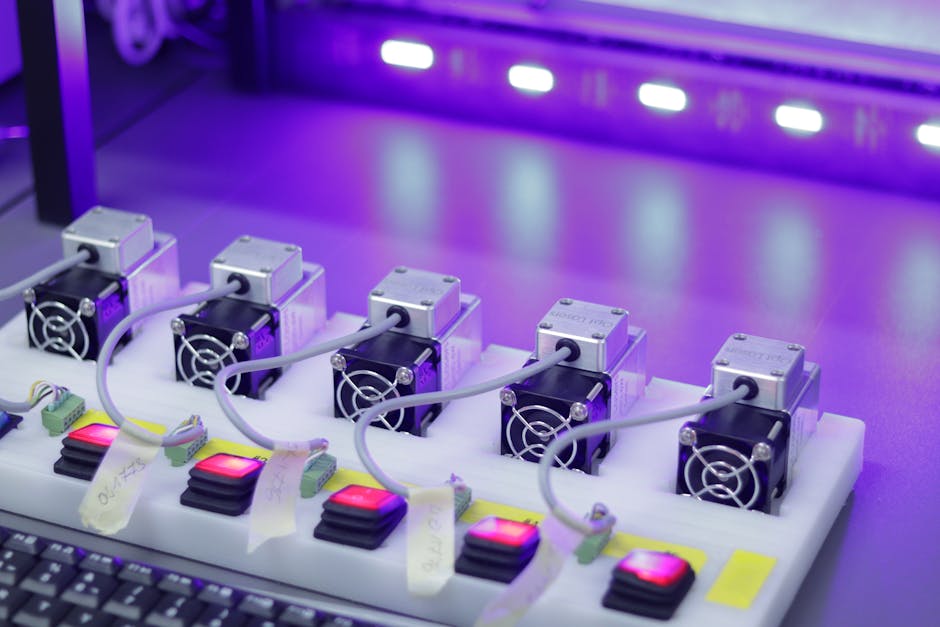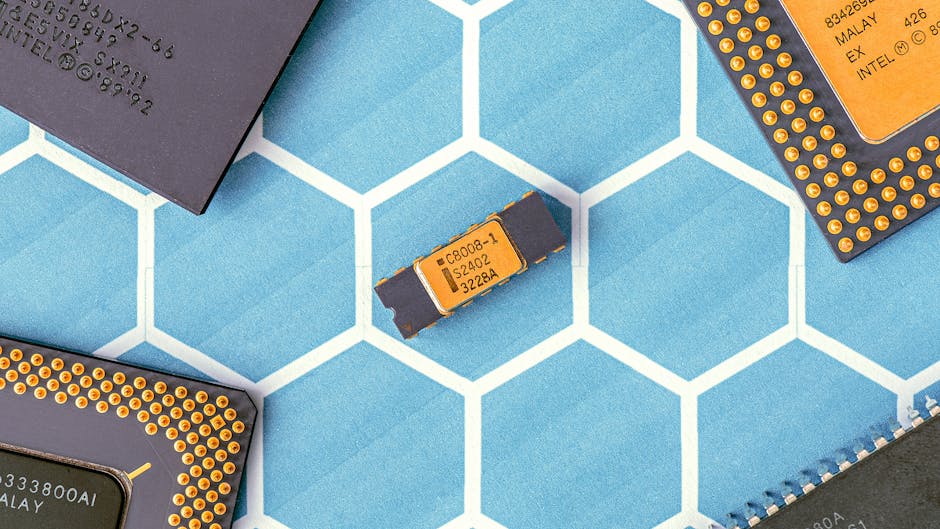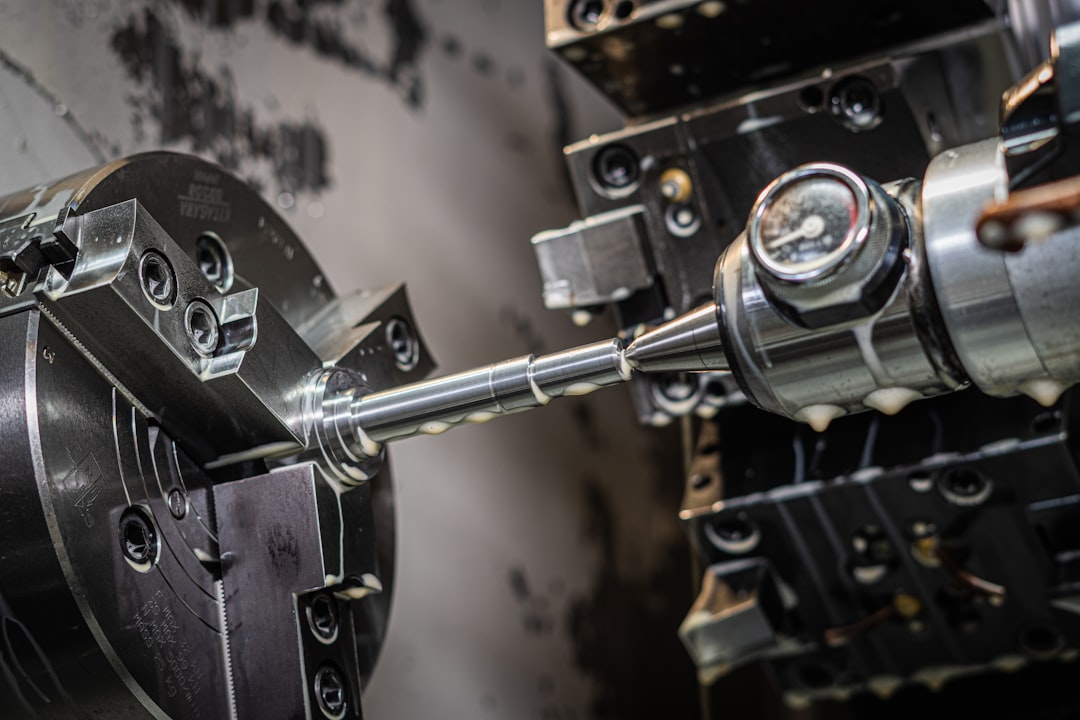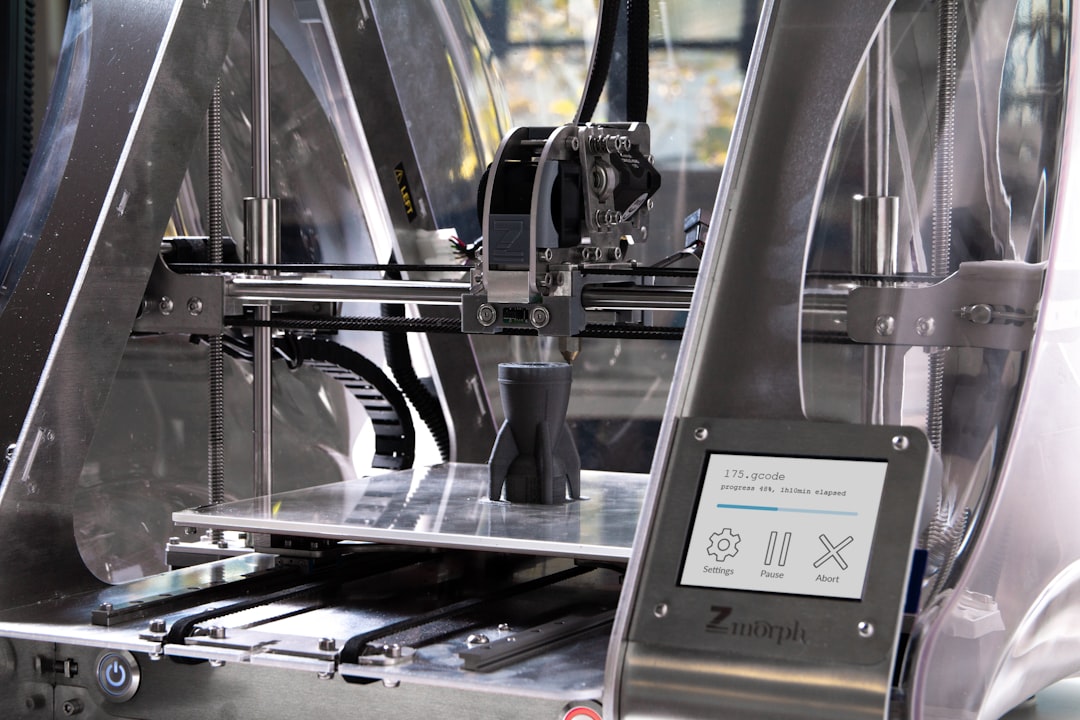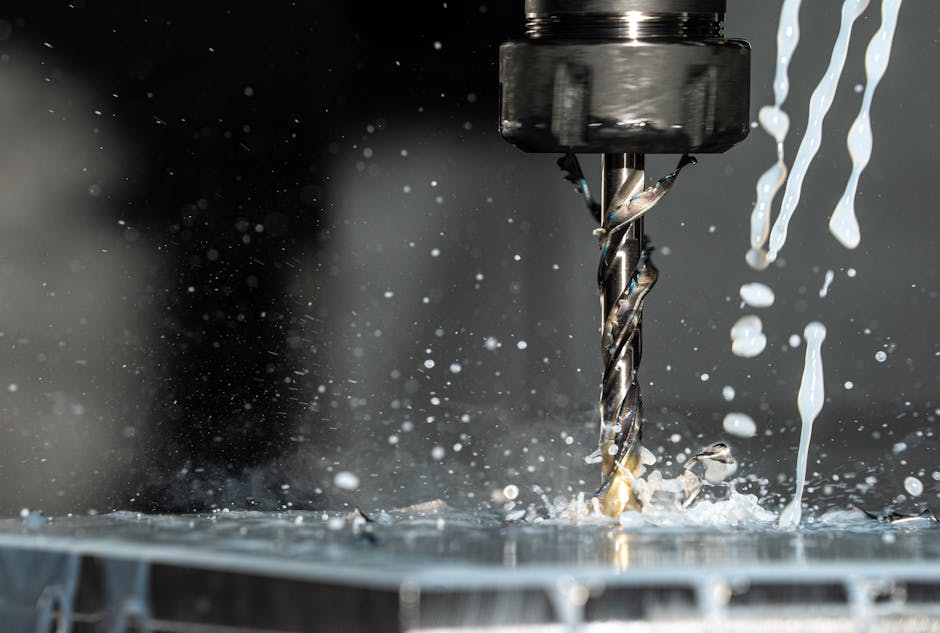Introduction
Ever wondered how the intricate medical devices so critical to our health are precisely manufactured? How do companies ensure the quality and accuracy necessary in an industry where a slight error may mean the difference between life and death? The answer lies with Medical Device CNC Machining. This method, short for Computer Numerical Control machining, provides precision, versatility, and the ability to manufacture complex details essential for the medical industry.
It’s a game-changing technology that’s enhancing manufacturing processes across a multitude of sectors, most notably healthcare. In an environment where there’s no room for error, let alone inconsistency, CNC machining has stepped in to effortlessly meet these non-negotiable demands. Qualities like precision, scalability, and consistency not only make this technology appealing but also indispensable for high stakes industries like healthcare.
At TMC Technologies, we understand the gravitas of our role as medical machining experts in this critical industry. Our services guarantee accurate fabrication, ensuring the efficacy and performance of the resulting medical equipment.
The following table succinctly presents the key services provided by TMC Technologies:
| Services | TMC Technologies |
|---|---|
| Range of services | Design & CAD services, Fabrication & Assembly, Precision Machining, Supply Chain Management |
| Experience | Over 20 years in the field |
| Precision | High-quality, detail-oriented components |
| Efficiency | Swift production time maintaining close attention to quality |
| Reliability | Consistent output, meeting or exceeding client expectations |

This engaging infographic encapsulates why the medical industry depends and benefits substantially from CNC machining: from its ability to handle a wide variety of materials, produce complex geometries to its promise of high-volume production. The precision and speed offered by CNC machining have made it an invaluable tool in manufacturing medical devices, directly contributing to enhanced patient care. Stay with us as we elaborate on the importance, role, benefits and future trends of CNC machining in the thriving medical industry.
The Demand for CNC Machining in the Medical Industry
Why CNC Machining is in High Demand in the Medical Industry
The high demand for CNC machining in the medical industry is largely driven by its ability to deliver exceptional precision and versatility. Medical devices require intricate components that can be made to exact specifications, and CNC machining fits the bill perfectly.
From surgical instruments to electronic medical equipment, medical devices are nothing short of complex. They often require components with tight tolerances and unique geometries, which are hard to achieve through conventional machining.
CNC machining stands out as it allows the production of these complex parts with impressive accuracy and speed, even on a large scale. That means manufacturers can meet the ever-growing demand for medical devices without compromising on quality.
Moreover, CNC machining adheres to the strictest standards of precision and quality demanded by the medical field. In an industry where the slightest error can result in significant consequences, CNC machining provides the level of precision required, thus mitigating the risk of errors.
The Difference Between CNC and Conventional Machining
While conventional machining can be cost-effective for small jobs, CNC machining is more efficient for larger jobs. With conventional machining, the process involves manually controlling the machines and tools. This approach can be time-consuming and has a higher risk of error.
On the other hand, CNC machining uses computers to control the machine tools, ensuring a higher level of accuracy and efficiency. This method is particularly beneficial when producing a high volume of parts, as it can maintain consistent quality across all products. Therefore, while CNC machining may be more expensive for small jobs, it offers significant efficiency and cost savings for larger jobs.
Materials Suitable for CNC Machining in Medical Devices
A wide range of materials can be used in CNC machining for medical devices. These include metals such as aluminium, steel alloys, stainless steel and brass, as well as plastics like ABS, polycarbonate, nylon, POM and PEEK.
Materials like stainless steel, aluminum, and titanium are often used in the creation of durable, high-quality medical devices that can withstand the rigors of medical use. At TMC Technologies, we often work with these materials given their suitability in the medical field.
In conclusion, the medical industry’s high demand for CNC machining is a testament to its ability to deliver precision, versatility, and efficiency. It enables the production of high-quality medical devices that enhance healthcare delivery. As we continue to advance in medical device CNC machining, we remain committed to exceeding the stringent standards of the medical field.
The Benefits of CNC Machining for Medical Devices
In the ultra-precise world of medical devices, every micro-inch counts. The ability to produce accurate, reliable components is not just desirable, it’s absolutely crucial. This is where the merits of CNC (Computer Numerical Control) machining come into sharp focus.
Precision and Accuracy of CNC Machining
One of the fundamental advantages of CNC machining is its unrivaled precision and accuracy. Complex medical devices often demand extraordinarily tight tolerances, a feat easily accomplished with our advanced CNC machines. Our machines consistently produce parts with dimensional tolerances within ±0.0001 inches, highlighting the precision that CNC machining brings to the table.
Moreover, CNC machining ensures consistent output. This means that whether we’re manufacturing the first or the thousandth part, the quality and dimensions remain uniform. This level of consistency is vital in the medical industry, where even the slightest variation could lead to significant consequences.
Versatility and Volume Production Capabilities of CNC Machining
CNC machining is not only precise but also versatile. Our advanced machines can handle a wide array of materials, from metals such as titanium to plastics like PEEK, making them ideal for producing a diverse range of medical parts and devices.
Additionally, CNC machining shines when it comes to volume production. Once a CAD (Computer-Aided Design) file is created, any number of parts can be manufactured at the push of a button. This capability is especially beneficial when producing high quantities of single-use or custom parts, a common requirement in the medical field.
Time and Cost Efficiency of CNC Machining
In a sector where time is critical, the speed of CNC machining is a significant advantage. Transitioning from a digital CAD file to a finished product can take just a few hours with CNC machining. This rapid production pace proves invaluable during medical emergencies when the required supplies and their quantities can be unpredictable.
Moreover, CNC machining is cost-effective. The machines can use tools repeatedly, inhibiting the escalation of production costs. This efficiency, combined with the speed of production, results in significant time and cost savings in the long run.
In conclusion, the precision, versatility, and efficiency of CNC machining make it an ideal choice for medical device manufacturing. As we continue to innovate and improve our processes, we remain committed to delivering top-tier quality components that meet the stringent requirements of the medical industry.
Applications of CNC Machining in the Medical Industry
CNC machining’s precision and consistency are integral to various applications within the medical sector. Let’s delve into some of the key areas where medical device CNC machining has made a significant impact.
Production of Surgical Instruments
CNC machining produces high-grade surgical instruments used by medical professionals during operations. These include surgical scissors, blade handles, biopsy tubes, cutters, implant holders, and forceps.
The beauty of CNC machining lies in its ability to manufacture these instruments with impeccable precision and adherence to strict safety requirements. This includes ease of sterilisation, a critical factor in the medical field.
Whether it’s short production runs or individual patient-specific fabrication, CNC machining is the go-to approach due to its cost-effectiveness and high precision.
Creation of Micromachined Medical Parts
When it comes to manufacturing extremely small medical parts, micromachining stands out. These tiny parts are primarily used in implantable devices, drug-delivering technologies, and exploratory surgical tools.
Micromachining can produce intricate components such as stents, pacemaker parts, catheters, drug delivery systems, and miniature screws for implants and devices. The high precision levels provided by CNC machining, even for components under 50 microns, are crucial in this process.
Manufacturing of Electronic Medical Equipment
Apart from simple devices like surgical instruments, CNC machines can also manufacture parts for complex equipment such as heart rate monitors, X-ray machines, and MRI scanners. These pieces of equipment comprise thousands of individual parts, most of which can be fabricated using CNC machines.
The parts range from small components like buttons, switches, and levers to larger items such as monitor housings. All these components must offer unparalleled precision to eliminate the risk of machine failure, especially since medical apparatus are frequently moved around hospitals.
Development of Medical Implants
CNC machining has had a significant impact on the production of bodily implants, such as knee implants and hip replacements. Typically, medical professionals only need implants in limited quantities. Therefore, injection molding processes, which are expensive, would be uneconomical to employ.
However, with CNC machining, the tools used can be utilized repeatedly, which prevents production costs from escalating. This, combined with our precision medical machining, makes us at TMC Technologies a preferred provider for medical implants.
In conclusion, the applications of CNC machining in the medical industry are vast and essential. Its ability to produce high-precision components while maintaining consistency makes it a tool in healthcare. At TMC Technologies, we are proud to be part of this revolution, contributing to the advancement of medical technology and improving patient care.
TMC Technologies’ Expertise in Medical Device CNC Machining
TMC Technologies’ High-Quality CNC Components
As a leader in the CNC machining industry, we at TMC Technologies pride ourselves on delivering high-quality, precision-machined components that form the backbone of various medical devices. Our expertise in medical device CNC machining is backed by over 20 years of experience, allowing us to create components that meet the exacting standards of the healthcare sector.
We understand the critical nature of the components we produce. A slight error in the production of a surgical tool or medical device can have significant consequences. Hence, we leverage our extensive experience and the latest CNC machining technologies to ensure absolute precision and accuracy in every component we produce, mitigating the risk of such errors.
TMC Technologies’ Unique Selling Proposition
What sets us apart in this highly competitive industry is our unwavering commitment to precision, quality, and customer satisfaction. We don’t just promise high-quality CNC components – we deliver them, consistently and reliably. Our unique selling proposition lies in our ability to provide tailored solutions based on our clients’ unique needs.
Additionally, we are ISO 13485 and 9001 certified, demonstrating our commitment to maintaining the highest quality management principles and adhering to international standards in medical device manufacturing. This certification assures our clients that we meet the stringent safety and reliability standards required in the medical industry.
TMC Technologies’ Additional Machining Services
But we don’t stop at producing high-quality components. At TMC Technologies, we offer a comprehensive range of additional services that set us apart. This includes tool design and fabrication services for custom applications, grinding, various secondary operations, heat treating, and light fabrication/assembly.
By offering these additional services, we position ourselves as a one-stop-shop for all your CNC needs, providing convenience, efficiency, and peace of mind. We are more than just a manufacturer – we are a reliable partner that understands your needs, values quality, and delivers precision.
Our commitment to our clients goes beyond the immediate task at hand. We guide our clients through the CNC machining process, from design to production, ensuring they understand each phase of the process. This hands-on approach allows us to build strong, lasting relationships with our clients, proving that TMC Technologies is the ideal partner for medical device CNC machining.
The Future of CNC Machining in the Medical Industry
As we look ahead, the future of medical device CNC machining is exciting and filled with potential. We see two main areas where CNC machining will continue to make significant strides in the medical industry: digital manufacturing for rapid development, and personalization of healthcare products.
The Role of Digital Manufacturing in Accelerating Medical Device Development
One of the significant advantages of CNC machining is its compatibility with digital manufacturing. This technology allows for rapid prototyping, bridge tooling, and low-volume production, all crucial in accelerating the development of medical devices.
At TMC Technologies, we leverage digital manufacturing to offer speed and precision in our CNC machining services. We provide design for manufacturability (DFM) feedback on every quote and have the ability to prototype in production-grade materials. Our turnaround times are fast, and we can produce low-volume and precise production parts in as little as one day.
As we continue to innovate and invest in the latest technology, we anticipate an even more streamlined and efficient production process. This will allow us to deliver more precise, efficient, and capable services, ultimately reducing costs and time to market for our customers.
The Potential of CNC Machining in Personalizing Healthcare Products
The future of healthcare is leaning towards a more patient-centric approach. This shift is increasing the demand for custom-made implants and prosthetics, requiring a high level of precision and customization. CNC machining has the potential to meet this demand effectively.
CNC machining’s versatility and precision make it ideal for creating highly specialized medical devices and equipment. Whether it’s a one-off or single-use custom part, CNC machining can deliver accurate and high-quality results with no minimum order requirement.
At TMC Technologies, we are excited about the potential of CNC machining in personalizing healthcare products. Our precision machining capabilities enable us to craft custom components that fit each patient perfectly. This commitment to personalization not only improves the quality of care but also enhances patient comfort and satisfaction.
We remain dedicated to leveraging the power of CNC machining to revolutionize healthcare. We are not just manufacturers; we are partners in progress, shaping the future of healthcare with every CNC machined part. We look forward to contributing to the advancements in medical device CNC machining and continuing to deliver the highest quality CNC machined parts for our clients.
Conclusion
The Continued Importance of CNC Machining in Revolutionizing Healthcare
The transformative potential of medical device CNC machining in the healthcare sector cannot be overstated. It is an integral part of the manufacturing processes that create the tools, implants, and equipment used daily in medical procedures. With the ability to produce parts with intricate geometries, exceptionally tight tolerances, and in high quantities, CNC machining is vital to meet the growing demand for advanced medical devices.
Moreover, the adaptability of CNC machining, combined with advancements in digital manufacturing and CAD systems, allows for faster development and customization of medical devices. This is particularly beneficial in personalized healthcare, where the need for customized solutions is paramount. The future of healthcare relies heavily on these technologies, and we anticipate that CNC machining will continue to play a key role in the industry’s evolution.
TMC Technologies’ Commitment to Advancing Medical Device CNC Machining
At TMC Technologies, we recognize the critical role we play in this transformative journey. Our commitment to advancing medical device CNC machining is unwavering. We strive to maintain the highest quality standards, ensuring that every component we produce is accurate, reliable, and durable. Our dedication to precision, efficiency, and reliability is reflected in every product we manufacture.
Our ISO 9001:2015 certification guarantees that our processes and products adhere to the highest quality standards. Further, our precision machining services guarantee the accurate fabrication of components that contribute directly to the performance and longevity of a wide range of medical devices.
As the medical sector continues to evolve, we are eager to meet the challenges head-on, leveraging our expertise to provide the most advanced, efficient, and precise machining services available. We understand the stakes are high, and we are proud to be at the forefront of this exciting revolution.
At TMC Technologies, we don’t just manufacture parts; we are partners in progress, shaping the future of healthcare with every CNC machined part. We are excited about what the future holds and look forward to contributing even more to the advancements in medical device CNC machining.
To learn more about our services and how we can support your manufacturing needs, visit our precision machining page or contact us today.





